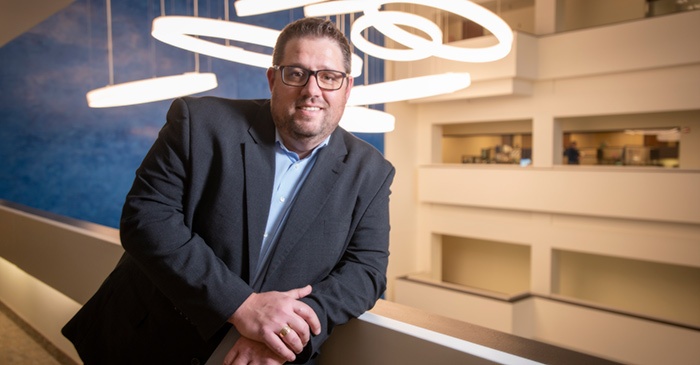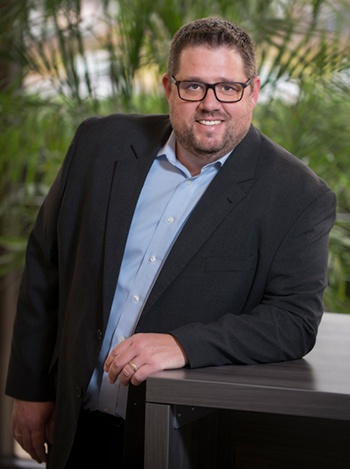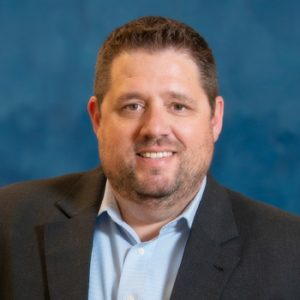Seeing money as a tool, not a goal
Seeing money as a tool, not a goal

Michael Dehnisch • Dallas, TX
Personal Economics Group
Read full biography below
I grew up in a faith-oriented family, and I think that prayer and the counsel of others have played a big role in all of the major decisions in my life. It was no different for my decision to enter financial services, but I took a slightly different path to get there.
I studied biology as an undergrad and in graduate school, which led to a master’s degree in biology with an emphasis on forest ecology. I was hoping to pursue my doctorate on a fellowship when my wife came across an opening for a biology teacher at a parochial high school in Dallas. It sounded like a good way to find out if I really liked and could excel at teaching. It worked out well on both counts, and I ended up teaching for 12 years, spending the last several years as the dean of students. In addition, I became an adjunct professor at Dallas Community College. What I loved most about teaching was making an impact on students’ lives—many students still stay in touch, and I think that speaks to having made a difference.
When my wife found a new position in a different area, we moved and I spent about six years in positions in the corporate world, including environmental consulting for the oil and gas industry. The compensation was good and the positions were a nice fit with my background, but I missed having the daily opportunity to make a personal impact with people. Through my church, I met someone who was recruiting for Thrivent Financial, which has the core mission of connecting faith and finances for the Christian community. I worked with Thrivent for close to four years, becoming highly knowledgeable about their services and the financial-planning process—and building many good client relationships.
I had the opportunity to meet with the management at Personal Economics Group (PEG) and joined the firm in 2018. I was very impressed by the economics-based approach that they have developed. With my background, applying what I will call a more scientific and actuarial methodology to financial planning made perfect sense to me. PEG also places an emphasis on client education, another thing that is personally very appealing.

My philosophy is to help my clients see their money as a tool and not a goal. Everyone has goals and dreams for their lives. How do they accomplish those with the finite amount of resources they have and become good stewards of their money? We focus on teaching clients how money works before identifying options on how it could be employed. That is my objective for each of my clients.
My initial conversations with clients don’t focus on what I can offer in terms of products. I come to any new relationship with the heart of a teacher. I teach them about how assets work, what they can potentially do for them, and how they’re going to be able to spend them later in life. If I can educate them on how retirement income works, then we can help make sure they are adequately prepared to face the challenges and opportunities of retirement when they get there.
I often discuss with clients how changes in corporate retirement plans affect them. Our grandparents and many of our parents, if they were industrious, probably retired on a company pension, Social Security, and personal savings. Over the past few decades, companies have largely moved to defined contribution plans, such as 401(k)s. The risk has been taken off the company and placed on the employee, both in terms of how and how much they should invest over the years.
“We focus on teaching clients how money works before identifying options on how it should be employed.”
Hopefully, people are concentrating on contributing to their 401(k) as much as possible and saving in other ways, building up their potential assets for retirement. But you don’t retire on assets, you retire on income that allows you to pay the bills and do the things you want to do. Your paycheck from the company has stopped, and you have to create your own paycheck. Too often, the financial professional’s background can overly influence discussions about retirement income. They make the case they are most comfortable with, whether that is a focus on traditional investments or a focus on insurance products. The fact is that many strategies should be employed in ways to help maximize the efficiency of a retirement plan. These could include passive investments, managed investment strategies, annuities, insurance products, and others.
This is where actuarial science comes into play. I ask clients as they think about any endeavor or task in life, which is harder to come by, equipment and tools or skill and technique? The latter of the two, of course. Equipment can be acquired anywhere. It is the same in financial services. Most financial advisors can gain access to the same products, but sound strategy that manages risk is harder to come by. Inefficiencies in strategy could cause shortfalls in retirement income or allow major losses to occur. Our goal is to customize a financial plan for clients that sets the stage for their assets to be used efficiently to create streams of retirement income. We also would like to see highly unpredictable scenarios for retirement income become a lot more predictable, again based on actuarial science.
First, it is a highly customized approach for each client that considers their risk profile, age, assets, liquidity needs, qualified versus nonqualified money, and the objectives we have helped them identify.
 I believe I bring value to clients by managing the relationship and their expectations, focusing on the financial and retirement-income planning process, and helping them work through the many issues that come up in their financial lives. I think the development of an investment strategy, the implementation of it, and the management of investments can be best entrusted to third-party investment professionals that have the time, focus, experience, and resources that I could never replicate. I spend a lot of time vetting those managers—understanding their process and capabilities and how their strategies are differentiated.
I believe I bring value to clients by managing the relationship and their expectations, focusing on the financial and retirement-income planning process, and helping them work through the many issues that come up in their financial lives. I think the development of an investment strategy, the implementation of it, and the management of investments can be best entrusted to third-party investment professionals that have the time, focus, experience, and resources that I could never replicate. I spend a lot of time vetting those managers—understanding their process and capabilities and how their strategies are differentiated.
I use various third-party managers that make sense for a specific client’s investment objectives. Not all managers or investment platforms are created equal, and they certainly don’t always have similar approaches. One manager I use emphasizes tactical, risk-managed strategies that can adapt as appropriate to changing market conditions. I think having that risk-management focus is important for many clients, and part of my educational process centers on discussing market risk, especially sequence-of-returns risk. Other managers may have a more passive approach to investment strategies, and that might be suitable for a portion of any given client’s portfolio. I might also use very low-cost funds that are strictly long-only passive funds. My role is determining how to allocate between various types of investment strategies and finding a suitable balance of risk and reward given the client’s overall objectives.
I would hope they say that I am focused on financial education, take the time to really get to know them and their family situation, and bring a caring, respectful attitude to the relationship. I hope they appreciate the benefits of our approach to planning and recognize our dedication in serving clients. I tell clients there is a big difference between having money as your goal and using money to help fulfill your goals. I believe they come to understand and appreciate that distinction.

8 steps to a client-first financial-planning process
Michael Dehnisch is a financial professional with Personal Economics Group (PEG), located in Dallas, Texas. Mr. Dehnisch says, “Everyone has goals and dreams for their lives. How do they accomplish that with the finite amount of resources they have and become good stewards of their money?” He has several core principles that inform his relationships with clients and his financial-planning process:
- Focus on client education first.
- Employ an economics-based approach to financial planning.
- Help clients understand how assets are tools, not goals.
- Explain the differences between accumulation and distribution strategies.
- Work to reduce the unpredictability of retirement income streams.
- Strive to manage risk and volatility in clients’ investment portfolios.
- Help clients develop financial strategies that align with their life objectives.
- Serve clients diligently, with compassion and respect.
 Michael Dehnisch is a financial professional with Personal Economics Group (PEG), located in Dallas, Texas. PEG brings “an economics-based approach to helping clients,” using a sophisticated strategic approach and “hands-on financial guidance.”
Michael Dehnisch is a financial professional with Personal Economics Group (PEG), located in Dallas, Texas. PEG brings “an economics-based approach to helping clients,” using a sophisticated strategic approach and “hands-on financial guidance.”
Mr. Dehnisch was raised in Aledo, Texas, just west of Fort Worth. He says his parents taught him and his three siblings “the value of faith and hard work and being a contributing member of the community.” His father was a Marine veteran and an airplane mechanic and his mother worked as a church secretary. Mr. Dehnisch was an athlete in high school and worked whenever he could “to help save up for college.”
Mr. Dehnisch received a bachelor’s degree in biology from Southwestern Oklahoma State University and a master’s in biology from Stephen F. Austin State University. He started his career as a teacher and dean of students at Bishop Lynch High School in Dallas, Texas, and an adjunct professor for Dallas Community College. He went on to work in the corporate world but “missed the impact that he was able to make on others.” He decided the financial-services industry would be a good fit and started his practice with Thrivent Financial, later transitioning to Personal Economics Group.
Mr. Dehnisch and his wife have a teenage daughter and son. He enjoys being involved in his children’s sports and likes cooking, hunting, and fishing. He is active at his church, where he is on the board of trustees at St. Philip’s Episcopal School and is involved in various ministries. Mr. Dehnisch has served on mission trips in the U.S. and abroad and is involved with Hearts and Hammers, Habitat for Humanity, Bonton Farms, and Embrace Texas.
Disclosure: Registered representative and investment advisor representative of and securities offered through OneAmerica Securities Inc., a registered investment advisor, member FINRA, SIPC. Personal Economics Group is not an affiliate of OneAmerica Securities or the companies of OneAmerica and is not a broker-dealer or registered investment advisor.
Provided content is for overview and informational purposes only and is not intended and should not be relied upon as individualized tax, legal, fiduciary, or investment advice. Investing involves risk which includes potential loss of principal. The use of asset allocation or diversification does not assure a profit or guarantee against a loss. Not affiliated with or endorsed by the Social Security Administration, the Centers for Medicare & Medicaid Services, or any governmental agency.
Photography by Robert Hart

